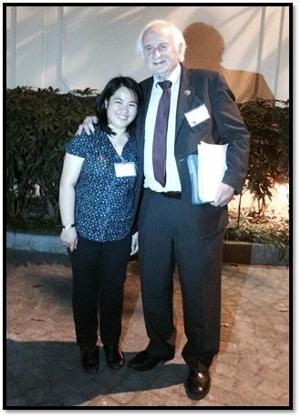The Treatment of Do Thi Minh Hahn: Another Reason to Kill the TPP

Do Thi Minh Hahn is a young, committed Vietnamese labor rights activist. What happened to her is also another reason that U.S. workers should oppose the pending Trans-Pacific Partnership (TPP) so-called “free trade” pact and that the U.S. Congress should kill it.
The pact, pushed by big business and Democratic President Barack Obama – most recently on his trip to Vietnam – would give plutocrats and corporations virtually unlimited sway in exporting U.S. jobs to low-wage anti-worker nations such as Vietnam and Brunei. The TPP covers the U.S. and 11 Pacific Rim nations, including those two.
What it doesn’t guarantee, among other things, is worker rights in Vietnam . There are future promises on Vietnamese worker rights, but no penalties if Vietnam breaks them.
And that’s where Do Thi Minh Hahn comes in. Because while Obama didn’t meet with her on his trip, Rep. Sander Levin, D-Mich., did a year ago, he told his constituents.
Do Thi Mihn Hahn, Levin said, is “a dedicated young labor activist…recently released after serving four years and four months in prison for trying to organize workers.”
Levin continues: “In 2010, Ms. Do and two of her colleagues were arrested, sentenced, and imprisoned for peacefully organizing workers at a shoe factory. Her colleagues -- Mr. Doan Huy Chuong and Mr. Nguyen Hoang Quoc Hung -- are still in prison serving 7-year and 9-year sentences respectively for distributing leaflets to striking workers.
“I had their experiences fully in mind when I pressed for worker rights provisions in the Trans-Pacific Partnership,” adds Levin, the top Democrat on the House Ways and Means Committee, which considers trade pacts and their implementing legislation.
But the Obama administration’s TPP implementing legislation – which the Republican majority on the committee whisked through intact earlier this year – contains not a word about human rights or worker rights in Vietnam. And the GOP-run House narrowly passed the bill.
The TPP itself gives Vietnam five years to try to comply with core international labor standards, such as freedom of association and the right to organize. But it contains no penalties if Vietnam refuses. And the TPP says nothing about Vietnam’s rock-bottom wages, the big lure for corporate chieftains salivating over the trade pact.
“Words on a piece of paper are not enough, so I was deeply dismayed the administration did not call on Vietnam to begin changing their laws and practices in order to come into compliance with their obligations in the TPP,” Levin said of Obama’s trip there.
So Levin and two dozen other House Democrats raised the Vietnamese worker rights issue in a classified briefing with Obama’s trade rep and TPP negotiator, Michael Froman. They got nowhere.
“When Vietnam joined the TPP negotiations, it was clear the country’s participation would present a major challenge. For the United States, this would be the first trade agreement negotiated with a communist country, where the only union allowed is part of the Communist Party and the government,” Levin reported.
“In Vietnam, workers do not have the right to form or join an independent union of their choosing, nor to organize across enterprises, or to affiliate with confederations,” Levin added. That’s what Do Thi Minh Hahn was advocating.
“By signing TPP, Vietnam agreed to bring about major structural changes in industrial relations in Vietnam,’ the congressman said. “Yet no positive changes have been made in
Vietnam. And where changes are occurring, they appear to be moving in the wrong direction.
“In the weeks following the conclusion of TPP negotiations and the signing of the agreement, I learned that Ms. Do was beaten and detained by authorities while organizing workers terminated after a factory fire. She was treated at a hospital for her injuries.
“Since then, Ms. Do and her fellow labor activists have continued their work organizing in their communities, which includes disseminating to workers in Vietnam information about the worker rights provisions in TPP.” Never mind that those provisions are weak to non-existent.
“As a result of their work, the labor activists have been subjected to monitoring, intimidation, harassment, and assault by authorities. Vietnam continues to punish and abuse Ms. Do and other labor activists who are seeking to exercise the rights that Vietnam has committed to provide by joining TPP,” Levin said.
“The test of the reforms that Vietnam has agreed to make is its conduct on the ground.”
That means releasing the other labor activists, ceasing harassment, arrests, beatings and intimidation, and “explicitly encouraging efforts” of labor activists and organizers to form independent unions, he explained.
Trade agreements, including the TPP, “should not simply be based on future promises,” Levin warns.
“Given the experience on the ground in Vietnam for workers since the TPP was signed, the answer to the question ‘If not now, when?’ seems more likely to be ‘Never’ when it comes to worker rights.”

